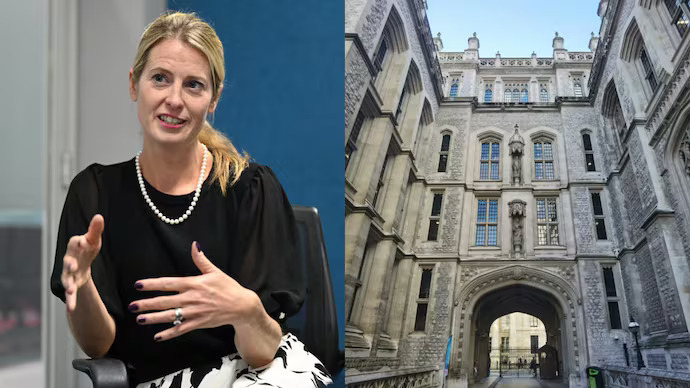King’s College vice dean champions India partnerships, AI-powered learning and London’s city-classroom experience
By | International | 19-Sep-2025 18:31:02

News Story
“London is a phenomenally exciting
place.” For Dr Robyn Klingler-Vidra, Vice Dean for Global Engagement at King’s
Business School, King’s College London, the statement is not a tourist’s cliché
but a distillation of over a decade of watching international students — many
from India — find their footing, falter, adapt, and flourish in one of the
world’s most cosmopolitan cities.
In a wide-ranging conversation, she mapped how
King’s is tightening its educational and research bonds with India, reframing
teaching in an AI-driven era, and ensuring students view London itself as part
of their learning journey.
India at the heart of global engagement
Indian students now account for 10–15% of King’s enrolments, with postgraduate
applications rising 48% year-on-year,
offers surging by 70%, and
enrolments climbing 67%. These
numbers, Klingler-Vidra argues, signal more than recruitment — they reflect
integration.
King’s has signed progression agreements with
five Indian institutions, most recently OP Jindal, offering streamlined
admissions, faster processing, and in some cases, waived fees. Longstanding
ties with institutes such as IIM Kozhikode have been reinforced with funded research collaborations and mobility
programmes, backed by the university’s External Engagement Incubation Fund
(EEIF). “It turns paper promises into funded projects and co-authored
scholarship,” she notes.
Teaching in the age of AI
With generative AI transforming education,
King’s takes a pragmatic stance. “It’s here, it’s a tool,” Klingler-Vidra says,
encouraging students to experiment across platforms such as Gemini and ChatGPT.
Instead of banning, the institution is redesigning assessment — prioritizing group work, presentations, and oral exams — to mirror workplace realities.
“The skill lies in prompting well,
interrogating outputs, and presenting thinking,” she explains, turning what
some see as disruption into an exercise in pedagogy.
London as a living classroom
For Klingler-Vidra, the university’s advantage
lies not only in its lectures but in its location. “We call it London as a
classroom,” she says, citing internships, industry partnerships, and the city’s
cultural vibrancy as extensions of academic life. From student unions to
authentic neighbourhood markets, London offers what she calls a “pulse of government, finance, and tech in one place.”
Beyond startups, toward systemic innovation
On entrepreneurship, Klingler-Vidra pushes for
clarity. “More startups doesn’t necessarily solve societal challenges,” she
cautions, urging integration of startups into wider industrial systems. For
India, she stresses, the challenge is not just generating ventures but aligning
them with the country’s industrial strengths and global competitiveness.
A message for Indian students
Her advice to Indian aspirants is clear:
accessibility, integration, and rigour matter more than prestige alone. With
scholarships supported by the British Council, streamlined admission pathways,
and substantive research collaborations, King’s, she argues, offers more than a
transactional education.
The message carries weight: Apply with ease, learn to harness AI, embrace London as a living campus, and carry curiosity as the true passport.